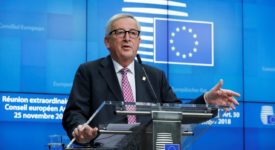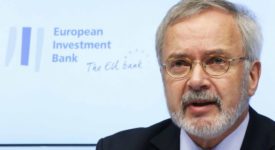The chiefs of the European Council, Herman van Rompuy, and the European Commission, Manuel Barroso, indirectly clashed Tuesday (22 April) over the procedure to appoint the next Commission President following the direct EU elections on 22-25 May. In an interview with the media, the Council President opposed the election of the next Commission President via a battle of “leading candidates” of the main political families at the European elections. While acknowledging the “important role” that the European Parliament had to play since the entry into force of the Lisbon Treaty in 2009, Van Rompuy also argued that “the difference between the parliament and those who really decide is very clear to citizens,” whereby the low voter turnout in European elections is a sign of this trend.
Van Rompuy’s statement enraged many MEPs involved in the campaign to elect the successor to the current incumbent, Jose Manuel Barroso. The European Parliament is of the view that the next head of the executive Commission must be the leader of the political group that wins the most seats in the upcoming elections in the 28 member states. However, the EU treaty stipulates that it is the prerogative of European Council of national leaders to nominate a candidate, “taking account” of the elections after holding consultations. It has been a public secret that Van Rompuy is opposed to having public candidates for the Commission presidency during the next EU elections, yet since he is to chair an emergency EU summit on 27 May, which will take stock of the European elections results, his personal views may have far-reaching consequences. With his views, Van Rompuy also appears to be at odds with Barroso, because it was reportedly the latter’s idea that European political parties present their candidate for the top EU job at the European Parliament elections.
Article Categories:
INSTITUTIONS & POLICY-MAKING






